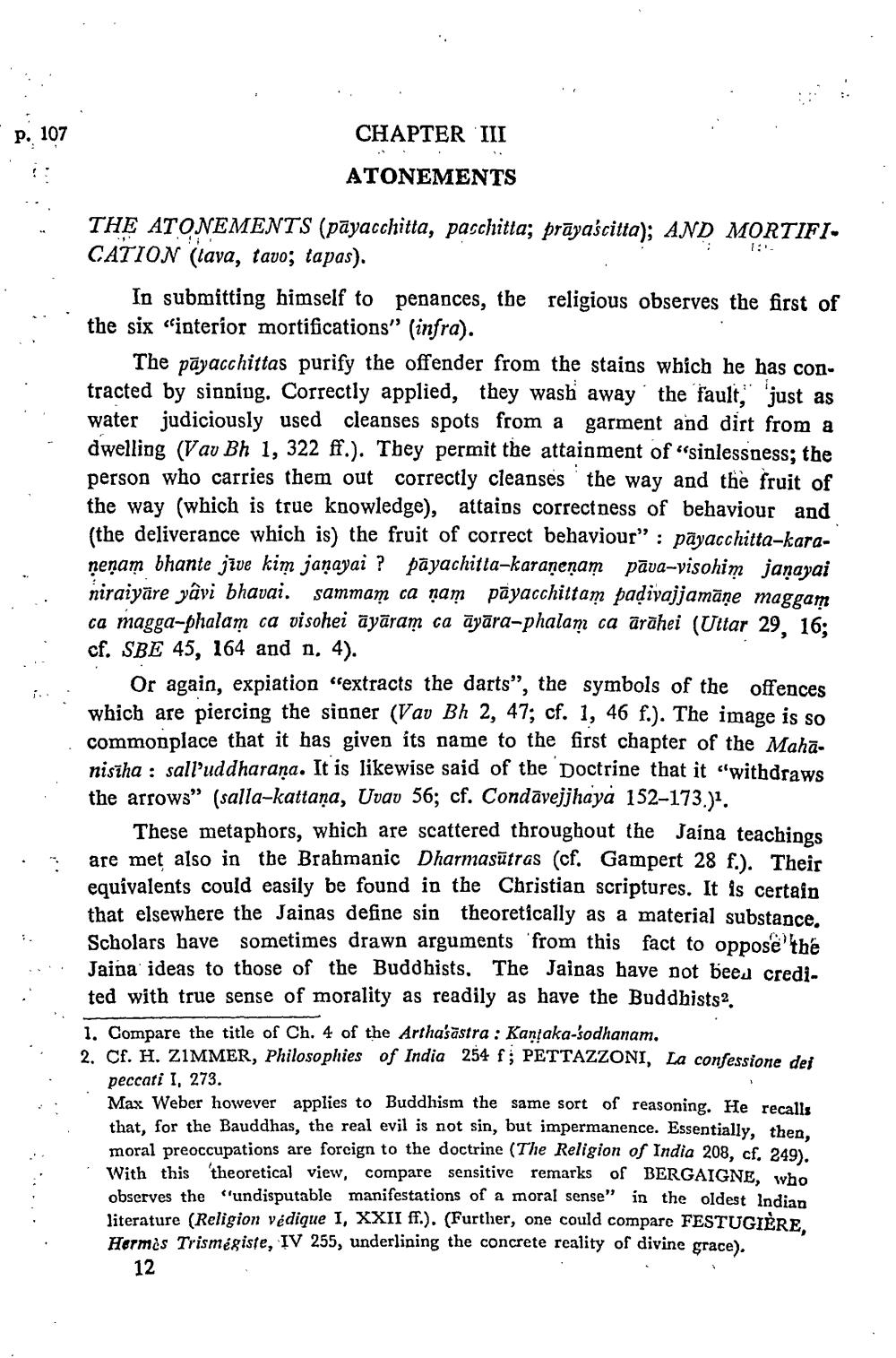________________
P. 107
CHAPTER III
ATONEMENTS
THE ATONEMENTS (payacchitta, pacchitta; prāyaścitta); AND MORTIFICATION (tava, tavo; tapas).
1:.
In submitting himself to penances, the religious observes the first of the six "interior mortifications" (infra).
The payacchittas purify the offender from the stains which he has contracted by sinning. Correctly applied, they wash away the fault, just as water judiciously used cleanses spots from a garment and dirt from a dwelling (Vav Bh 1, 322 ff.). They permit the attainment of "sinlessness; the person who carries them out correctly cleanses the way and the fruit of the way (which is true knowledge), attains correctness of behaviour and (the deliverance which is) the fruit of correct behaviour": payacchitta-karanenam bhante jive kim janayai? payachitta-karaṇeṇam pāva-visohim janayai niraiyare yavi bhavai. sammam ca nam payacchittam paḍivajjamāne maggam ca magga-phalam ca visohei ayaram ca ayara-phalam ca arahei (Uttar 29, 16; cf. SBE 45, 164 and n. 4).
Or again, expiation "extracts the darts", the symbols of the offences which are piercing the sinner (Vav Bh 2, 47; cf. 1, 46 f.). The image is so commonplace that it has given its name to the first chapter of the Mahanisiha: sall'uddharaṇa. It is likewise said of the Doctrine that it "withdraws the arrows" (salla-kattaṇa, Uvav 56; cf. Condavejjhaya 152–173.)1.
These metaphors, which are scattered throughout the Jaina teachings are met also in the Brahmanic Dharmasutras (cf. Gampert 28 f.). Their equivalents could easily be found in the Christian scriptures. It is certain that elsewhere the Jainas define sin theoretically as a material substance. Scholars have sometimes drawn arguments from this fact to oppose the Jaina ideas to those of the Buddhists. The Jainas have not been credited with true sense of morality as readily as have the Buddhists2.
1. Compare the title of Ch. 4 of the Artha'sastra: Kantaka-sodhanam.
2. Cf. H. ZIMMER, Philosophies of India 254 f; PETTAZZONI, La confessione dei peccati I, 273.
Max Weber however applies to Buddhism the same sort of reasoning. He recalls that, for the Bauddhas, the real evil is not sin, but impermanence. Essentially, then, moral preoccupations are foreign to the doctrine (The Religion of India 208, cf. 249). With this theoretical view, compare sensitive remarks of BERGAIGNE, who observes the "undisputable manifestations of a moral sense" in the oldest Indian literature (Religion védique I, XXII ff.). (Further, one could compare FESTUGIÈRE, Hermès Trismegiste, IV 255, underlining the concrete reality of divine grace).
12




